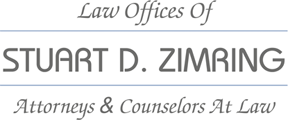In her piece, “A Conversation We All Should Have,” columnist Ellen Goodman advocates the importance of planning for end of life care. Ms. Goodman points out: “Surveys tell us that 70 percent of Americans… want to die at home but 70 percent end up dying in hospitals and institutions.”
This fact is unsettling, and it should not be most Americans’ reality. Yet, it will persist if the majority of Americans continually fail to address our ultimate mortality. We all must ask ourselves: if something were to happen to me, where I could not clearly communicate, would my family (and friends) know what to do? Would they know what I want? Would they feel comfortable that they were doing the right thing for me?
Certainly, this is a tough topic to think about. Oftentimes it seems even more difficult, if not impossible, to discuss it with our family (and friends). Few things are more critical however, than finding the time and mustering the strength to ensure these important conversations happen. Doing so will enable your family (and friends) to face inevitably challenging and emotional moments with proper guidance.
As early as possible, family (and friends) should be made fully aware of your feelings about end of life care. Your doctor must be informed of and also monitor your health. Your elder law attorney needs to ensure you have an effective plan in place, and is trained to facilitate comfortable family discussion and coordination of care.
It goes without saying, paired with dying and death are sadness and mourning. Ultimately, the only control we maintain, the only true power we have, comes from our ability to express our wishes in advance and have them honored. It is our individual responsibility to ensure we do not burden our family (and friends), and though there may never be a “right” time, do challenge yourself to plan for tomorrow, today.
If you would like more information on facilitating a conversation about end of life planning visit: http://theconversationproject.org. To read Goodman’s article, go here.
[Disclaimer: The materials contained on this website have been authored or gathered by the Law Offices of Stuart D. Zimring, and are intended for informational purposes only. It is not intended to be and is not considered to be legal advice. Transmission is not intended to create and receipt does not establish an attorney-client relationship.]
